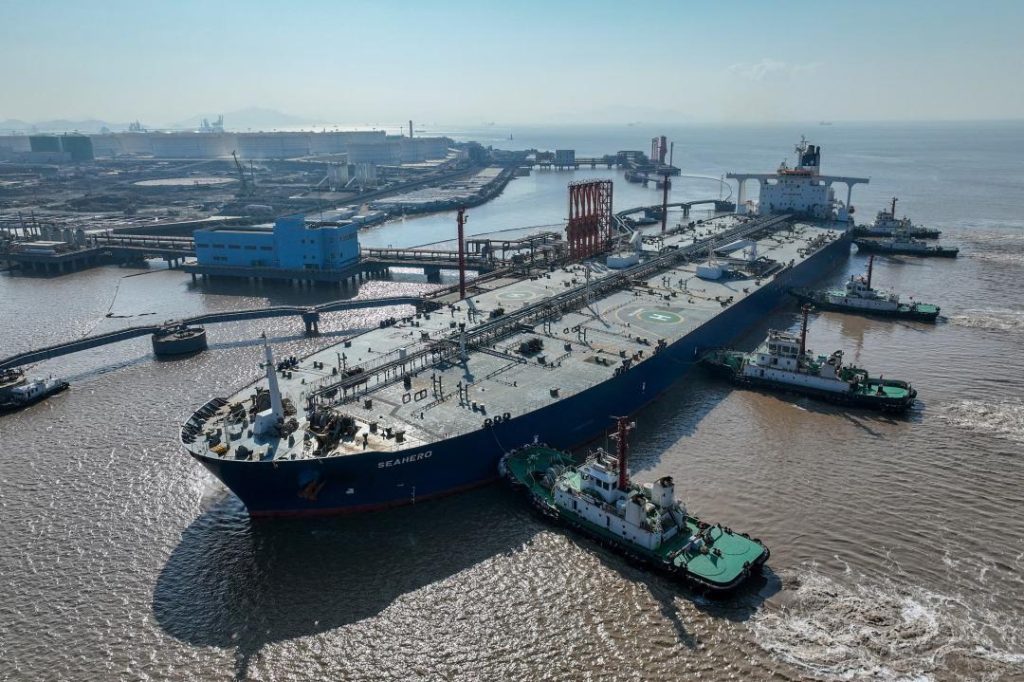
India Sends Diesel to China for First Time Since 2021 Amid US Tariffs & EU Sanctions: Report
In a rare development, India has dispatched a cargo of diesel to China for the first time since 2021. According to a report by Bloomberg, around 500,000 barrels of diesel from Russia-linked Indian refiner Nayara Energy, which controls India’s second-largest refinery, is heading to China. This shipment is significant considering the ongoing trade tensions and sanctions imposed by the US and the EU on Nayara Energy.
The cargo was initially bound for Malaysia but made a U-turn towards China’s Zhoushan, a major oil hub. This move comes as a surprise to many, given the strained relations between India and China in recent years. The two nations have been engaged in a border dispute, which escalated into a military standoff in 2020.
However, it appears that economic interests have taken precedence over diplomatic tensions. Nayara Energy, which is controlled by the Russian billionaire family, the Rybolovlevs, is facing sanctions from the EU for its alleged involvement in the war in Ukraine. The US, too, has imposed 50% tariffs on Indian exports, including oil, in response to India’s refusal to condemn Russia’s actions in Ukraine.
Despite these challenges, Nayara Energy has managed to find a new market for its diesel, which is in high demand in China. The country has been struggling to reduce its reliance on foreign oil, and the Indian shipment is expected to help meet some of its domestic demand.
The development is also significant in the context of India’s growing energy ties with China. The two nations have been working to strengthen their energy cooperation, particularly in the areas of oil and natural gas. In 2020, India and China signed a memorandum of understanding (MoU) to increase their energy trade, which includes cooperation in the areas of exploration, production, and supply of oil and natural gas.
The shipment of diesel to China is a rare instance of India’s energy diplomacy in action. India has traditionally been a net importer of oil, and its energy security has been a major concern for the government. The country has been working to increase its refining capacity and reduce its dependence on foreign oil, but it still relies heavily on imports to meet its energy needs.
The development also highlights the complex web of international relations and trade agreements that shape the global energy market. The US and the EU have been trying to limit Russia’s energy exports, particularly to China, as part of their efforts to reduce the country’s influence in the region. However, India’s decision to send diesel to China demonstrates that economic interests can sometimes trump diplomatic tensions.
For Nayara Energy, the shipment is a significant development, given the challenges it is facing due to the sanctions. The company has been working to diversify its customer base and reduce its reliance on a single market. The shipment to China is a major boost to its business, and it is likely to help the company weather the current challenges.
In conclusion, the shipment of diesel from India to China is a significant development in the global energy market. It highlights the complex web of international relations and trade agreements that shape the market, and demonstrates that economic interests can sometimes trump diplomatic tensions. The development is also a major boost to Nayara Energy, which is facing challenges due to the sanctions imposed by the US and the EU.






